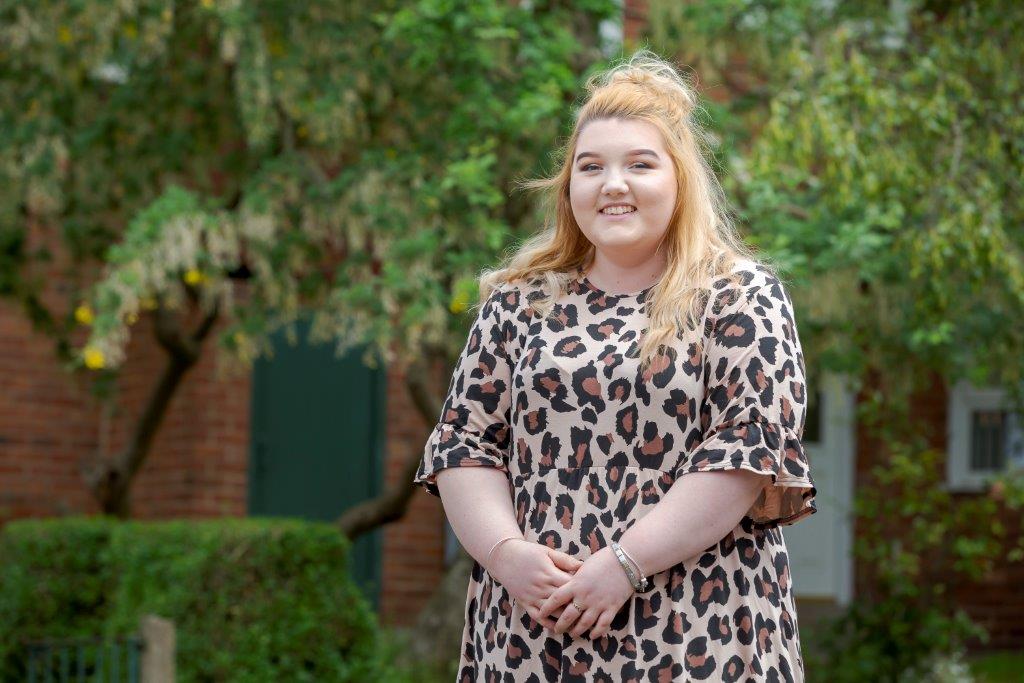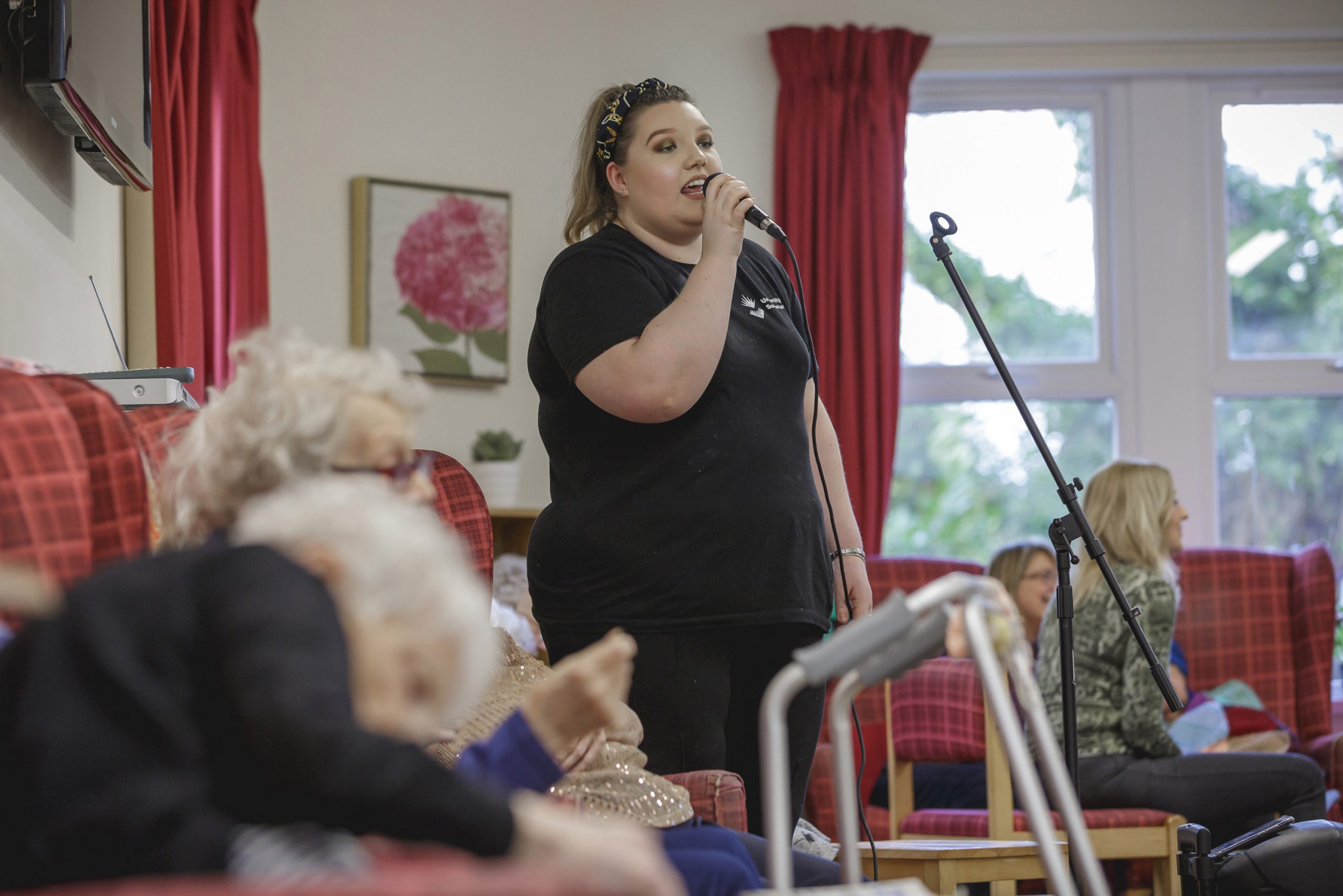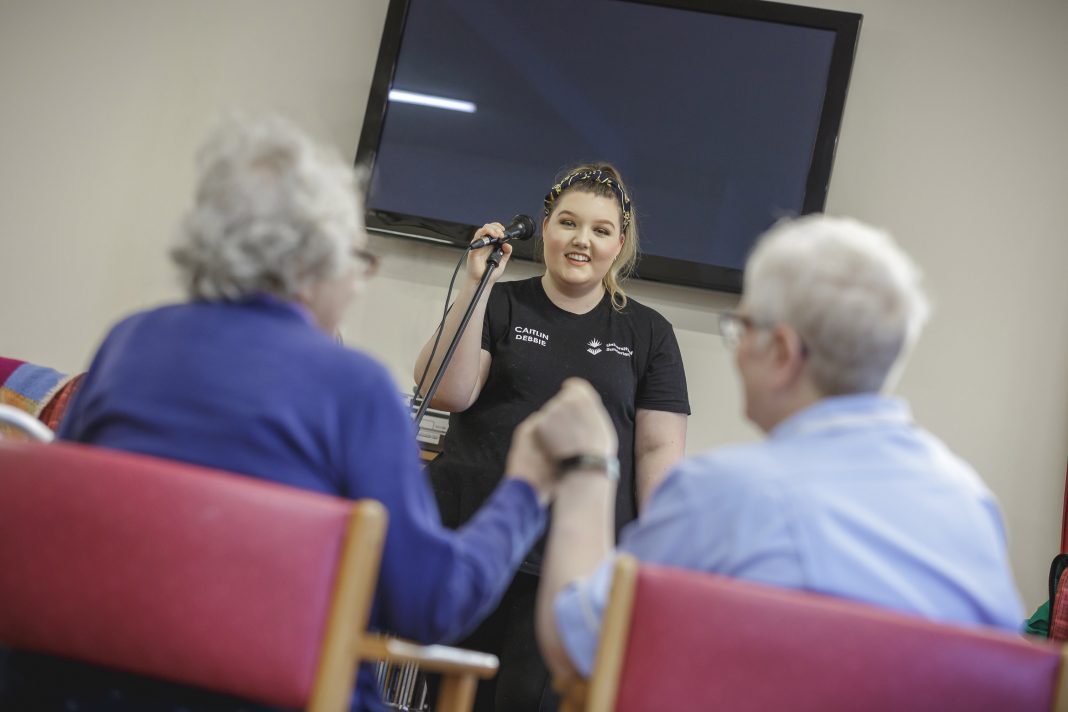Caitlin Robson, whose musical talents have had a huge impact on the mental wellbeing of dementia patients across the region’s residential homes, graduated with First Class Honours.
When Caitlin had to complete a 10-week community placement in the first year of her Performing Arts degree at the University of Sunderland, she saw it as an opportunity to work with people suffering dementia and Alzheimer’s, inspired by her own role caring for her mum who suffers a rare autoimmune disease, Scleromyxedema.
Drawing on her musical talents, from singing to playing the flute, saxophone, clarinet and piano, 21-year-old Caitlin set up a series of workshops at Hawksbury Care Home in Low Fell. The sessions had a huge impact on the residents, and even though the placement was temporary, Caitlin was asked to continue the sessions.

This led to two more care homes, Covent House in Birtley and South Chowdene in Gateshead, requesting her music therapy sessions, a combination of listening to music, playing musical games, creating playlists and making music.
Caitlin went on to launch her self-employed career with her own business, Music for Memories, while completing the final-year of her degree. That’s on the back burner right now, while, alongside caring for her mum, and working on placement at a school as part of her upcoming teaching qualification, she performs in amateur dramatic productions.
Caitlin, from Gateshead, said: “You can’t underestimate the power of music. I love seeing the look on the residents’ faces when they hear a song from their own past, they may not be able to remember what happened that morning, but music has this incredible power to stimulate memories, and they begin singing along to anything from Doris Day to Dame Vera Lynne, it’s wonderful.
“I have been singing and playing instruments since I was young and I try to draw on my love of music to vary the session and make them as interesting as possible.”
Caitlin added: “I am a naturally a caring person and I took the community placement module very seriously. I knew I had always been interested in working with dementia patents and this was a fantastic way to engage them through music.”
She added: “Music for memories will continue as soon as it is safe to do so. Obviously the coronavirus has had a devastating impact, especially within care homes, and I have been broken-hearted to hear of the loss of some amazing men and women. For now, my priority is that everyone stays safe and to do this I am currently working out ways to continue my services virtually as I think the happiness shared from music is extremely important at this time.”
Dementia affects more than 850,000 people in the UK each year and set to reach more than one million by 2025, this condition is most commonly caused by Alzheimer’s disease and is often seen in those aged over 65. Research shows that singing has been shown to improve behaviour, mood, and cognitive function in some dementia cases.
Hawksbury Care Home manager, Rachel Redman said: “Caitlin’s sessions have made a great impact with our residents. A great relationship has also been built with relatives who visit and listen and get involved too. We are delighted to continue working with Caitlin.”
Dr Adelle Hulsmeier, Senior Lecturer in Drama and Performing Arts and Programme Leader Screen Performance, said: “It is wonderful to watch Caitlin grow; as both a music practitioner and someone who is able to use her art form to nurture and help those most vulnerable in our community.
“Caitlin’s work is not only exciting, but incredibly important at a time when we need to be looking after one another, and helping those who need it most. Caitlin has a sharp and acute understanding of the power of music and the arts, and her work is an example of best practice on our BA (Hons) Performing Arts Degree programme. She thoroughly deserves her first class grade.”


Caitlin will begin studying her PGCE in September, now she has graduated – the first person in her immediate family to do so.
She said: “Now I have graduated I plan to complete my PGCE, and complete training to become a Special Educational Needs Co-ordinator (SENCO). My ambitions are still to own my own centre providing services for people of all ages and abilities, using music as a device to do this, but this needs funding, so I plan to save until I’m in a financial position to do so.”
She added: “I have enjoyed every bit of my Performing Arts course, the support from the lecturers is fantastic. I have been involved in lots of productions which has helped me grow in confidence and ability.
“I am looking forward to the future and continuing using music in the community as a therapeutic way to improve people’s lives.”
















